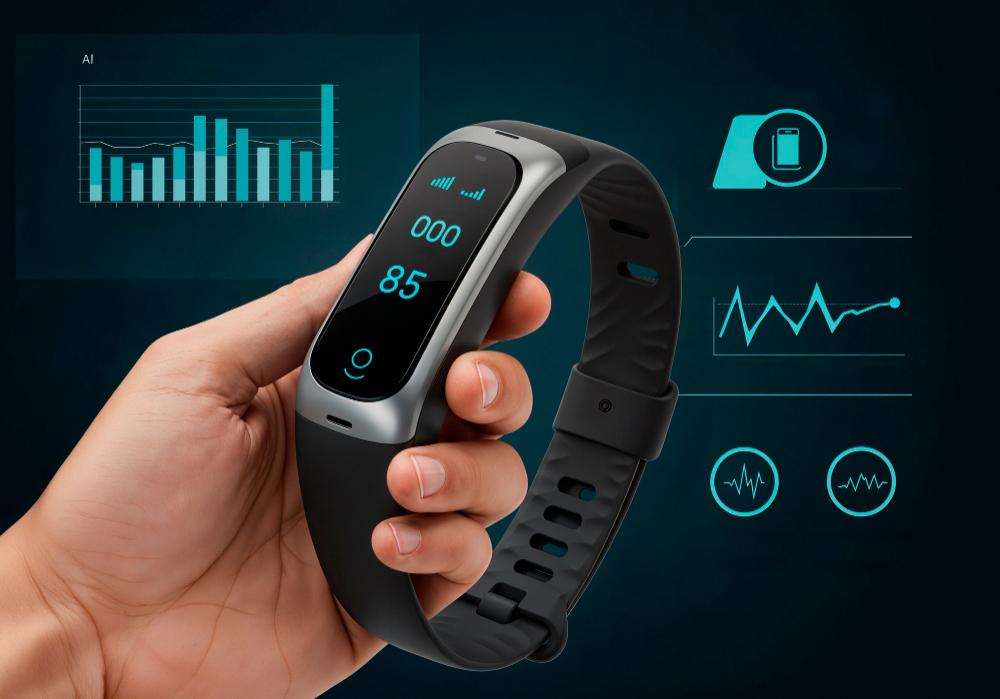The Digital Health Revolution: How Wearable Devices Are Reshaping Modern Medicine

Healthcare is undergoing a profound transformation as wearable technology becomes an integral part of medical practice. These innovative devices are bridging the gap between traditional healthcare delivery and personalized, data-driven medicine, offering unprecedented opportunities for patient care and health optimization.
Evolution of Smart Health Monitoring Systems
Wearable technology tracking devices have transformed from basic pedometers to sophisticated health monitoring ecosystems. Modern devices incorporate multiple sensors that can track everything from heart rate variability to stress levels, sleep quality, and even blood oxygen saturation.
The technological advancement in these devices includes the integration of bioimpedance sensors, advanced optical sensors, and miniaturized electrocardiogram capabilities. Machine learning algorithms process vast amounts of physiological data to provide actionable health insights, making these devices powerful tools for preventive healthcare.
Revolutionary Benefits Transforming Patient Care
The advantages of wearable technology extend far beyond simple health tracking. These devices enable continuous physiological monitoring, providing healthcare professionals with comprehensive patient data collected in real-world environments rather than clinical settings.
Remote patient monitoring capabilities have proven invaluable, especially for managing chronic diseases like diabetes and cardiovascular conditions. Patients can receive immediate alerts about concerning health patterns, while healthcare providers can intervene proactively before complications arise.
The technology also facilitates personalized medicine approaches. By analyzing individual health patterns over time, wearable devices can help optimize treatment plans and medication dosages based on real-world patient responses rather than population averages.
Cost-effectiveness represents another significant advantage. Healthcare systems can reduce hospital readmissions, minimize emergency visits, and optimize resource allocation by leveraging continuous monitoring data from wearable devices.
Today's Wearable Healthcare Ecosystem
Current wearable technology spans a broad spectrum of devices tailored for specific medical applications. Consumer-grade smartwatches now offer medical-grade features like ECG monitoring and irregular heart rhythm detection, making advanced health monitoring accessible to millions.
Specialized medical wearables include continuous glucose monitors that revolutionize diabetes management, smart inhalers for asthma patients, and wearable defibrillators for high-risk cardiac patients. These devices seamlessly integrate with healthcare information systems, enabling real-time data sharing between patients and medical teams.
The rise of digital therapeutics has introduced prescription-grade wearables that deliver targeted interventions for conditions like depression, anxiety, and chronic pain. These devices combine monitoring capabilities with evidence-based therapeutic protocols.
Emerging Innovations and Tomorrow's Possibilities
Future developments in wearable technology promise to revolutionize healthcare delivery through breakthrough innovations. Researchers are developing non-invasive biomarker detection systems that could diagnose diseases through sweat analysis or breath monitoring.
Advanced artificial intelligence integration will enable predictive health analytics, potentially identifying health risks weeks or months before symptoms appear. This capability could transform healthcare from reactive treatment to proactive prevention.
Nanotechnology integration will lead to implantable sensors that provide continuous monitoring of specific biomarkers, drug levels, or organ function. These ultra-miniaturized devices could offer unprecedented insight into human physiology.
The development of flexible, skin-like sensors will make wearable technology more comfortable and less intrusive, encouraging long-term adherence to monitoring protocols.
Conclusion
The integration of wearable technology in healthcare represents a fundamental shift toward personalized, proactive, and precise medicine. As these devices become more sophisticated and ubiquitous, they will continue to democratize healthcare access, improve patient outcomes, and reduce healthcare costs. The future of medicine is wearable, intelligent, and patient-centered.
Latest Reports:-
Pars Planitis Market | Partial Seizure Market | Peanut Allergy Market | Pediatric Neurology Devices Market | Peptic Ulcers Market | Percutaneous Mechanical Circulatory Support Market | Peripherally Inserted Central Catheter Devices Market | Peritoneal Carcinomatosis Market | Perivascular Epithelioid Cell Tumor Market | Dysthymia/persistent Depressive Disorder Market | Plasmodium Vivax Malaria Market | Pneumothorax Treatment Devices Market | Point Of Care Glucose Testing Market | Poliomyelitis Market | Polycystic Ovary Syndrome Market | Polycythemia Market | Polymyalgia Rheumatica Market | Positive Air Pressure Device Market | Post-operative Nausea & Vomiting Market | Postoperative Nausea And Vomiting Market | Powered Surgical Instrument Market | Immunologic Deficiency Syndrome Market | Primary Immunodeficiency Disease Market
- Art
- Causes
- Crafts
- Dance
- Drinks
- Film
- Fitness
- Food
- Juegos
- Gardening
- Health
- Home
- Literature
- Music
- Networking
- Other
- Party
- Religion
- Shopping
- Sports
- Theater
- Wellness



